Repository History
Explore all analyzed open source repositories
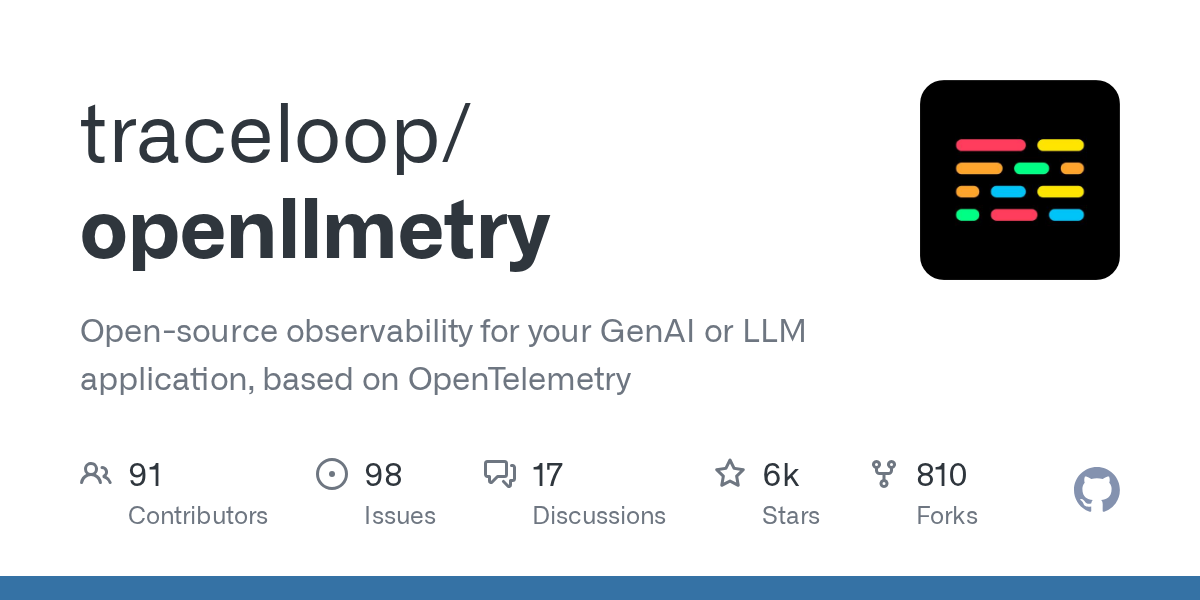
OpenLLMetry: Open-Source Observability for LLM Applications with OpenTelemetry
OpenLLMetry provides open-source observability for Generative AI (GenAI) and Large Language Model (LLM) applications, built upon the OpenTelemetry standard. It offers comprehensive tracing and monitoring capabilities, allowing seamless integration with existing observability solutions like Datadog, Honeycomb, and Grafana. This project simplifies the process of gaining insights into your LLM-powered systems.

SWE-agent: Automating Software Engineering with Language Models
SWE-agent is an innovative GitHub repository that empowers language models to autonomously fix issues in real-world software projects. This powerful tool can also be employed for offensive cybersecurity and competitive coding challenges, representing a significant advancement in automated software engineering. Developed by researchers from Princeton and Stanford, it was featured at NeurIPS 2024.
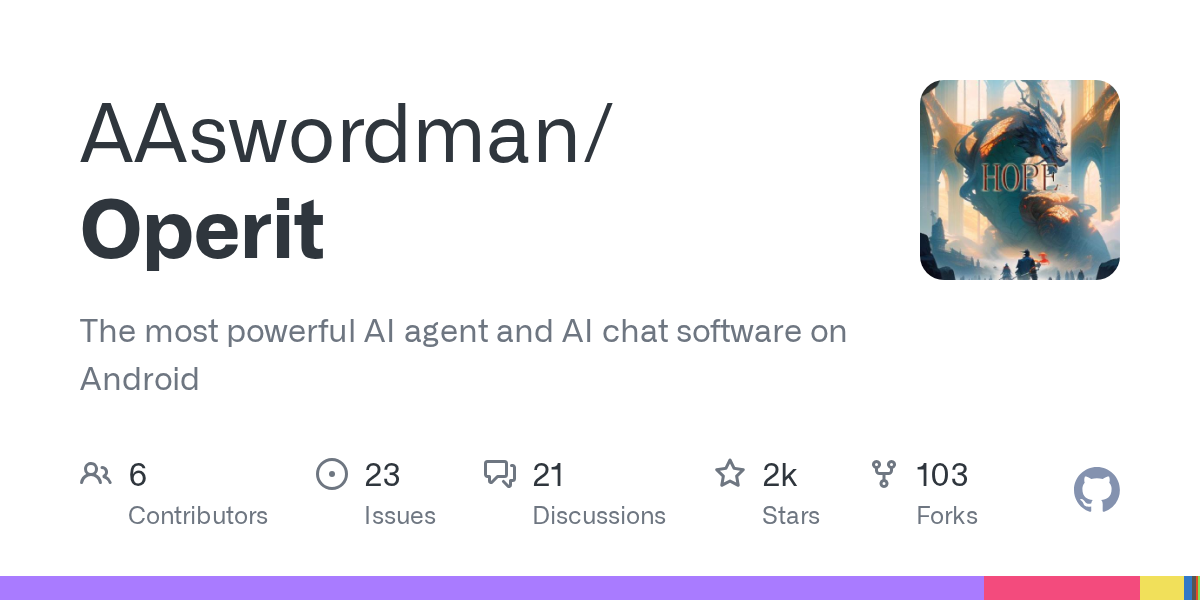
Operit: The Most Powerful AI Agent and Chat Software on Android
Operit is a groundbreaking AI agent and chat software designed for Android, offering unparalleled functionality directly on your mobile device. It operates completely independently, providing robust tool-calling capabilities, deep search, and a unique built-in Ubuntu 24 environment. This project aims to deliver a comprehensive and highly customizable mobile AI assistant experience, supported by an extensive plugin system.
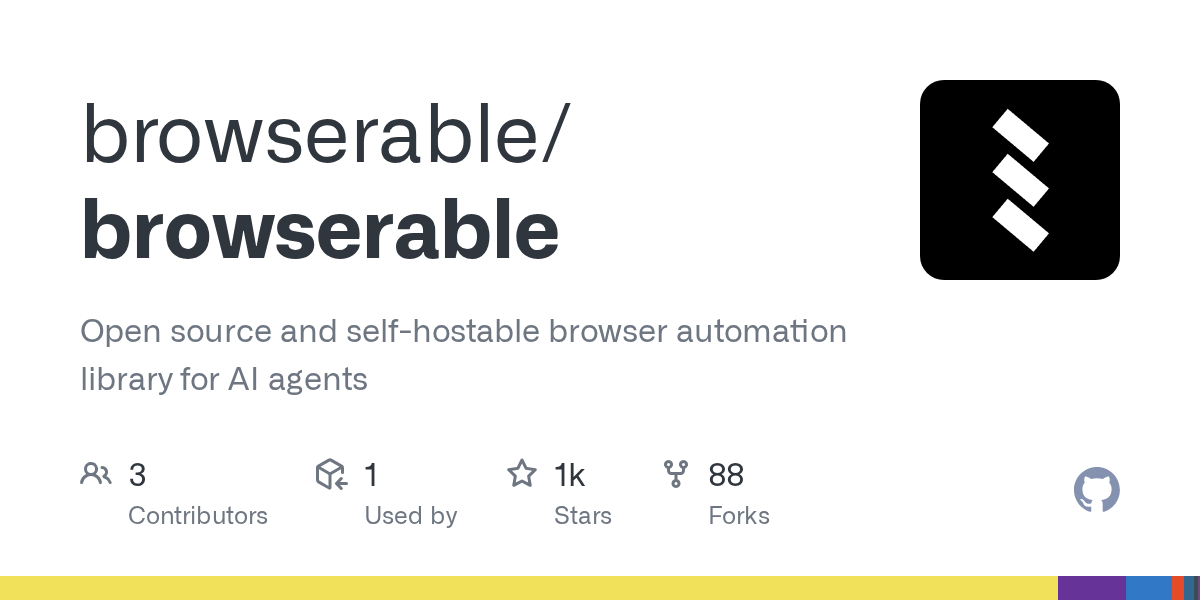
Browserable: Open Source Browser Automation for AI Agents
Browserable is an open-source and self-hostable library designed to empower AI agents with advanced browser automation capabilities. It enables agents to navigate websites, fill out forms, click buttons, and extract information efficiently. With a strong performance on Web Voyager benchmarks, Browserable provides a robust foundation for building intelligent AI-driven web interactions.
ChatTTS: A Generative Speech Model for Natural Dialogue and LLM Assistants
ChatTTS is an advanced text-to-speech model specifically designed for dialogue scenarios, such as those involving LLM assistants. It offers highly natural and expressive speech synthesis, featuring fine-grained control over prosodic elements like laughter, pauses, and interjections. This Python-based project supports both English and Chinese, making it a powerful tool for conversational AI applications.

MaxKB: Open-Source Platform for Enterprise-Grade AI Agents
MaxKB is a powerful, open-source platform designed for building enterprise-grade AI agents. It features integrated Retrieval-Augmented Generation (RAG) pipelines, robust workflow orchestration, and advanced MCP tool-use capabilities. This platform is ideal for intelligent customer service, corporate knowledge bases, and academic applications.
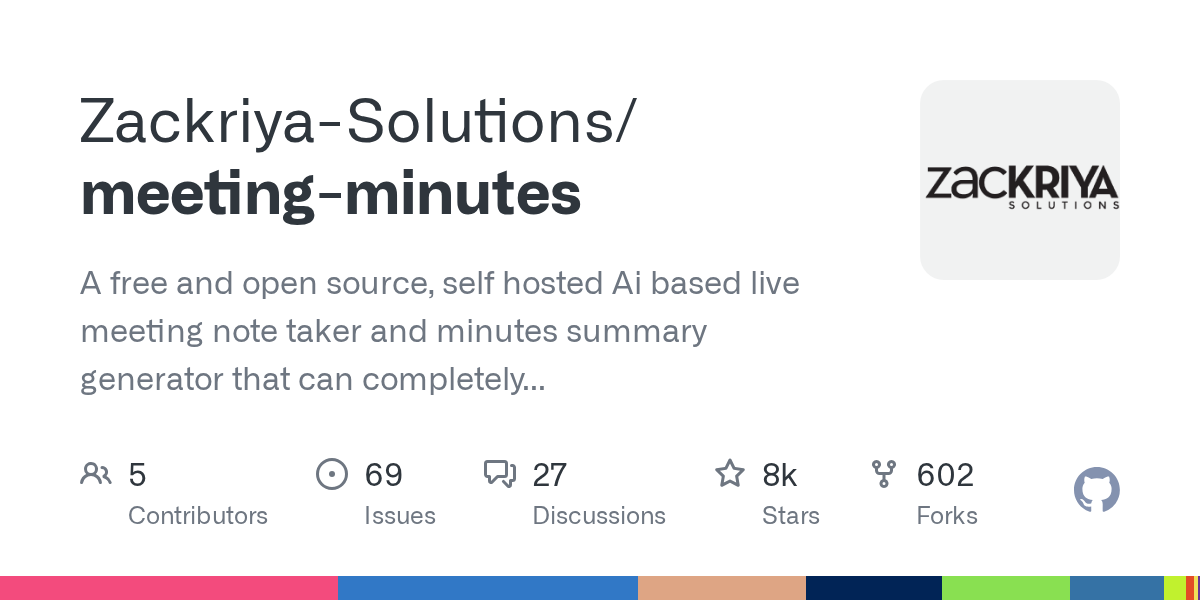
meeting-minutes: A Privacy-First AI Meeting Assistant for Local Devices
Zackriya-Solutions' meeting-minutes, also known as Meetily AI, is an open-source, self-hosted AI assistant designed to capture, transcribe, and summarize meetings locally on your device. It prioritizes privacy by processing all data on-premise, offering a secure alternative to cloud-based solutions for macOS and Windows users, with Linux support planned.

Harbor: Effortless Local LLM Stack Management with CLI and App
Harbor is a comprehensive containerized toolkit designed to simplify the setup and management of local LLM environments. It allows users to effortlessly run LLM backends, APIs, frontends, and various related services with simple commands or via a companion application. This project streamlines experimentation and development with large language models on your local machine.
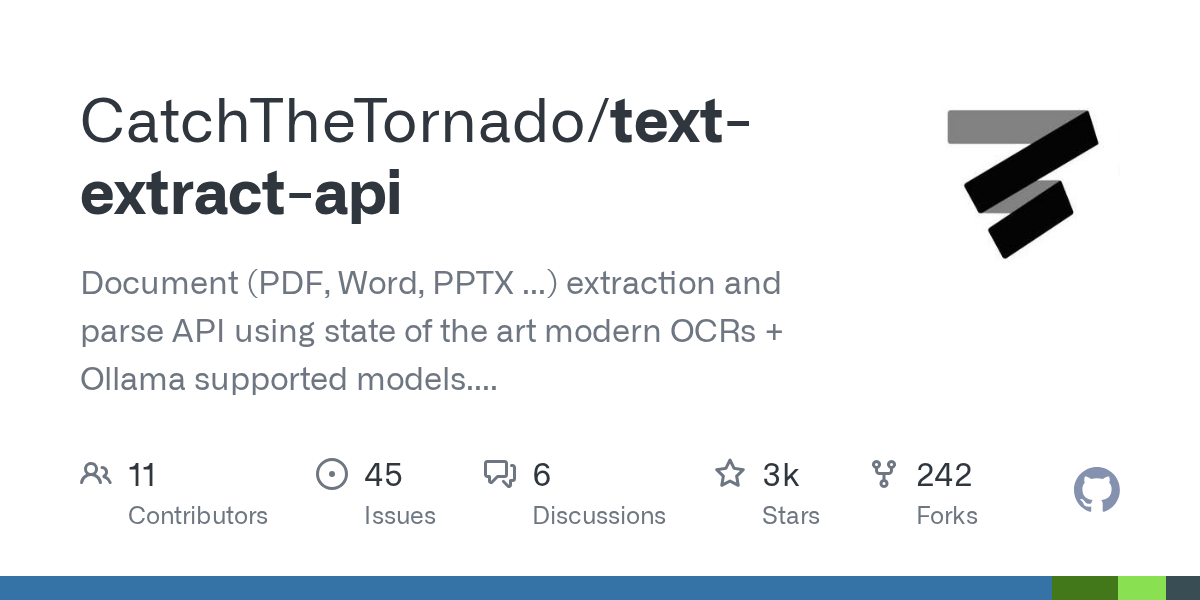
text-extract-api: Advanced Document Extraction, OCR, and PII Removal with LLMs
text-extract-api is a powerful API designed for extracting and parsing text from various document formats, including PDF, Word, and PPTX. It utilizes modern OCRs and Ollama-supported LLMs for highly accurate text extraction, PII removal, and conversion to structured JSON or Markdown, all while maintaining data privacy through its self-hosted architecture.
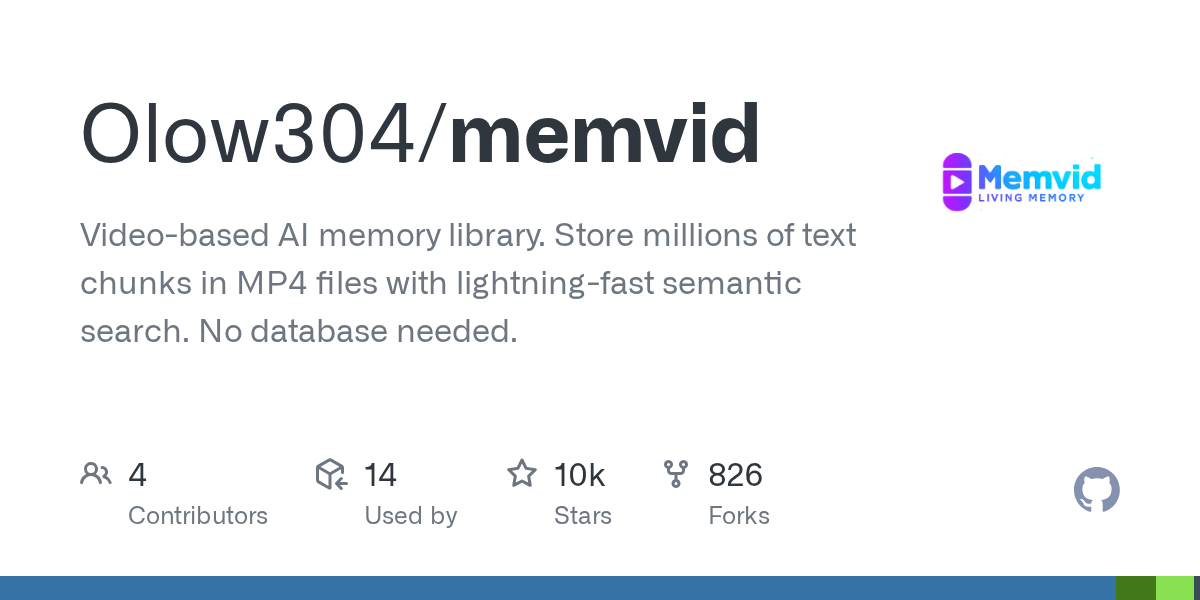
Memvid: Revolutionizing AI Memory with Video Compression and Semantic Search
Memvid is an innovative Python library that transforms vast amounts of text data into compact, searchable MP4 video files. It leverages advanced video codecs to store millions of text chunks as QR codes, enabling lightning-fast semantic search without the need for traditional databases. This approach offers significant storage savings, true portability, and an offline-first design for AI memory applications.